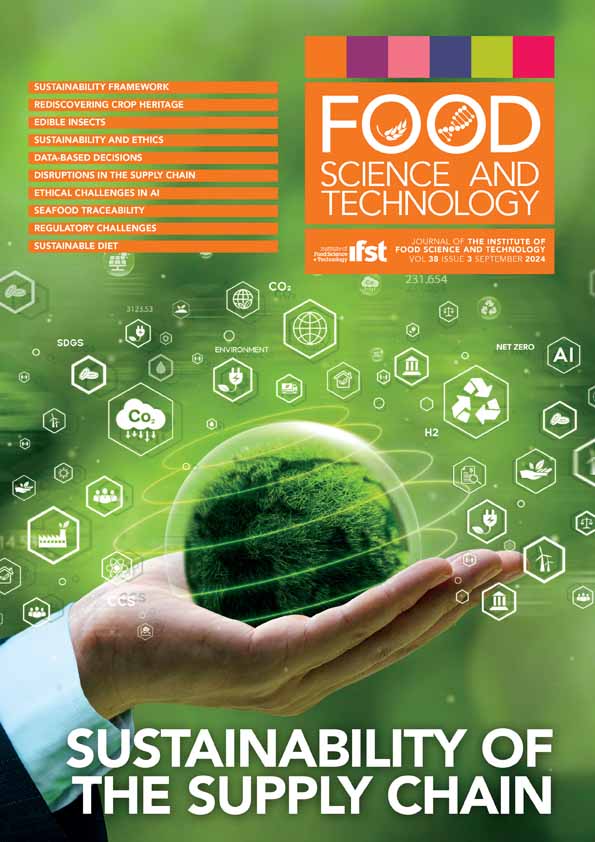Microbiological profile of artisanal coalho cheese produced in the Seridó region of Rio Grande do Norte, Brazil
Q2 Agricultural and Biological Sciences
引用次数: 0
Abstract
The production of artisanal cheeses is generally done empirically, without strict controls on the hygiene and final quality of these products. The aim of this study was to investigate the microbiological profile of artisanal coalho cheese produced in the Seridó region of Rio Grande do Norte. Forty-five samples were collected from eleven municipalities. The results for Staphylococcus aureus, Listeria monocytogenes, and Salmonella sp. were in line with current legislation. When analyzing coliforms at 35 and 45°C, more than 40% of the samples were contaminated to above legal limits. The fat content of the cheeses was below the regulated level, but the moisture content was in line with the category standards. In conclusion, the microbiological profile of artisanal coalho cheese produced in the Seridó region of Rio Grande do Norte does not yet meet the standards set by the Brazilian Ministry of Agriculture and Livestock decree 146, since the standards stipulated for total and thermotolerant coliforms still need to be better monitored, as contamination by these microorganisms is indicative of hygiene failures in the manufacturing processes. Standardizing artisanal products remains a challenge, highlighting the need for enhanced monitoring of product quality and health standards.巴西北里奥格兰德州塞里多地区生产的手工煤霍奶酪的微生物概况
手工奶酪的生产通常是凭经验进行的,没有对这些产品的卫生和最终质量进行严格控制。这项研究的目的是调查北里奥格兰德州塞里多地区生产的手工煤霍奶酪的微生物概况。研究人员从 11 个城市收集了 45 份样本。金黄色葡萄球菌、李斯特菌和沙门氏菌的检测结果符合现行法规。在 35 和 45°C 温度条件下分析大肠菌群时,超过 40% 的样品受到污染,超过了法定限值。奶酪的脂肪含量低于规定水平,但水分含量符合类别标准。总之,北里奥格兰德州塞里多地区生产的手工煤霍奶酪的微生物概况尚未达到巴西农业和畜牧业部第 146 号法令规定的标准,因为总大肠菌群和耐热大肠菌群的规定标准仍需更好地监测,因为这些微生物的污染表明生产过程中存在卫生问题。手工产品的标准化仍然是一项挑战,突出表明需要加强对产品质量和卫生标准的监测。
本文章由计算机程序翻译,如有差异,请以英文原文为准。
求助全文
约1分钟内获得全文
求助全文
来源期刊

Food Science and Technology
农林科学-食品科技
自引率
0.00%
发文量
0
审稿时长
12 weeks
期刊介绍:
Information not localized
 求助内容:
求助内容: 应助结果提醒方式:
应助结果提醒方式:


